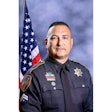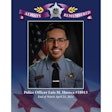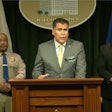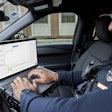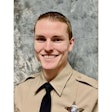As the terrible events of Sept. 11, 2001, began to unfold, many Americans watched the burning North Tower of the World Trade Center on their TVs and wondered what kind of horrific airline "accident" had taken place in Manhattan. Then as the live TV cameras rolled, United Airlines Flight 175 sliced into the South Tower, confirming the worst fears. This was no accident; it was enemy action.
When that second airliner slammed into the World Trade Center, thousands of Americans who serve in military reserve units and the National Guard knew that their civilian routines were about to be disrupted. They knew that the phones were about to ring in their unit headquarters and they would be leaving their everyday lives as students, office workers, truck drivers, and public safety personnel to support the actions of the active duty military and bolster homeland defense.
In the days following the attacks, managers in every company and organization in America started to take a serious look at their personnel charts and wonder how they would cope if all their reservists were called to war. And nowhere were managers and executives more nervous than in the command structures of law enforcement agencies.
Because police departments are by their command structure paramilitary organizations and because police work appeals to people with strong patriotic ideals, many police officers have served in the military and after discharge have maintained reserve status. Consequently, police officers make up a substantial percentage of the military reserves and the National Guard. That's a source of worry for the heads of many police agencies who know that a full-scale call up of reserve and Guard units would make it very difficult for them to provide adequate policing for their jurisdictions.
Although most department heads are now breathing a sigh of relief, as the late September call up of reserve and Guard units was limited, they experienced some very anxious moments in the days shortly after President Bush issued orders for the reservists to report for duty. And many chiefs of police and sheriffs remain worried about staffing issues should the war on terror expand to Iraq, Iran, or even North Korea.
Scary Stats
The figures are alarming. Most agencies could lose 10 percent or more of their officers in the event of a full-scale call up.
Smaller towns would be hurt the hardest. For example, the Christian Science Monitor reported in October that five out of 21 sworn officers in the beach community of Crystal River, Fla., are reservists.
But larger agencies are also vulnerable. The Colorado State Police (CSP) counts 52 reservists and Guard in its troop of 528. "Fortunately," says CSP spokesman Capt. Jim Wolfinbarger, "the potential impact has not been realized. Only 14 were activated and 12 are still out."
Still, despite milder effects than feared, most police executives say that the loss of officers to reserve and Guard activation has been painful, especially at a time when city, county, and state budgets are strained by a slow economy, and law enforcement is playing a vital role in homeland defense.
To make matters worse, most of the nation's police forces were shorthanded before Sept. 11, as they have been unable to recruit enough officers to fill their ranks. The result is a one-two punch of personnel woes that has many police chiefs and sheriffs making tough decisions about what programs to cut and how to make up for the loss of officers to the war effort.
Staffing Shortages
"We've gone through several years where filling the rank and structure of our organization has been very challenging because the economy has been so robust," says CSP's Wolfinbarger. "It's been difficult to recruit quality people into a law enforcement organization when the private sector has been so appealing. So this has certainly been poor timing in that regard because we're not particularly fat both for budgetary reasons at the legislative level and also because we've had difficulties the last few years finding qualified applicants."
Los Angeles Police Department director of personnel Thom Brennan says the city has lost 174 officers out of a complement of nearly 9,000 since the call ups began in September and that about 70 of those officers have returned to duty. A little more than 100 officers out of about 9,000 may not seem significant. But it is.
The LAPD has been short about 1,100 officers from its authorized strength for years now, and losing another 100 people makes allocation of resources a fine art. Brennan says the Department has been reassigning supervisors and administrators to street duty and recalling retired officers. "Under the city charter, the chief can recall retirees for up to 90 days," explains Brennan, who estimates that 100 retired officers were called back for primarily investigative duties.
Police reserve units have also been tapped by some beleaguered city departments. The city of Glouchester, Mass., has 67 sworn officers and it lost two Coast Guard reservists to the September call up. Chief John Marr says that his solution to the problem was a "military substitute," a time-honored tradition in Glouchester.
"We have police reserves, and we took the person on the top of the reserve list," says Marr. "That's the way it worked years ago [during World War II]. A lot of the retirees from this force were once military substitutes in the days of the war.
"But I'll tell you, I'm surprised to have to do it during my career. I didn't think I'd ever see the day that I'd be using military substitutes," Marr adds.
Not all departments have reserve units. One particularly hard hit agency is the Fargo (N.D.) Police Department. With 112 sworn officers, Fargo has lost more than 10 percent of its force to the call up. But that's just part of the story.
Fargo PD deputy chief Keith Ternes says that between the activation of reservists and Guard and vacancies from retirement and leave, the Department was down 25 officers at the end of September. "It was causing a tremendous problem for us," says Ternes. "We had to do a significant amount of temporary restructuring within the organization to try and maintain the level of service that we wanted to provide to the city of Fargo."
Ternes, like many police executives nationwide, worries about staffing concerns that could result from even further call ups. He estimates that the Fargo PD could lose another half dozen officers if the U.S. military is ordered to broaden its anti-terror campaign. And that could force a cut in some services.
Investigative Triage
For now Ternes emphasizes that the call up has not forced the department to curtail or even cut back any programs or services, but it has required the Fargo police to establish a sort of triage system for the investigation of certain types of crimes. "Of the people we lost [to the call up], five were in investigative jobs," says Ternes. "That's good and bad. There's been no great impact on our uniform patrol staff. But our investigative staff consists of 16 individuals and for them to lose five people was pretty dramatic."
Fortunately, Fargo has a very low violent crime rate, so most of the work of the investigative division involved theft and burglary. But Ternes admits that some cases are having to wait for investigations. "Cases that could have and would have received much more attention had the investigation staff been fully staffed are now relegated to the file cabinet until we can get to them," he says.
While so far the citizens of Fargo are not aware of any change in policing posture, the drain on labor has had a direct effect on the officers still on duty. "The staffing situation here right now is critical," says Ternes. "If you talk to any of our line officers, they would tell you that it's been very difficult to get time off. Vacation is at a standstill."
Although many officers nationwide are working long hours with little time off because of the call up, police executives say there have been few complaints. Because officers and agencies adhere to a code of national service as a way of life, both the departments and the officers carrying the extra burden are visibly supportive of their fellow officers serving in the Guard and the reserves.
"It's a sacrifice that the State Patrol in Colorado is willing to make on behalf of national defense," says CSP's Wolfinbarger. "It's definitely consistent with the mission of our organization."
Prayers and Parity
At the Shreveport (La.) Police Department, the show of support for the called up officers has become a very personal demonstration of patriotism and faith. Shortly after the call up began in September, the department established a "prayer wall" inside police headquarters to honor the Department's 20 officers who were activated for the war effort. The wall is decorated with photos of officers who have been called away to military duty.
"The prayer wall keeps the rest of our officers focused that these are our brother officers who are off serving our country right now," says Shreveport Police chief Jim Roberts. "A lot of the officers check on their families and do things for them. It was especially difficult for the families during the holidays because the officers were not at home."
The call up has also been difficult for the Shreveport PD. Although the Department only lost 20 officers to the war effort, it was already 38 officers short of its complement. Some programs, including a community affairs division tasked with crime prevention, have been scaled back and officers have been reassigned to street duty.
"The officers that were moved all had a tremendous attitude about it," says Roberts. "They knew exactly why their assignments were being changed. They knew it was because their brother officers were serving our country. So they didn't have any complaints. That's a tribute to them. They're fine people."
The Shreveport City Council also got into the spirit of comforting the reservists and Guard who were called up for the war. Mayor Keith Hightower pushed through a resolution to pay called up city employees the difference between their military pay and their city salaries.
Pay parity resolutions have been adopted by many city and county governments nationwide, and the financial relief they provide to officers activated to military service is critical. Most police officers, deputy sheriffs, and other law enforcement personnel earn considerably higher wages than active duty military.
"[Parity pay] is appropriate," says Livermore (Calif.) Police Chief Ron Scott. "We live in a pretty expensive area and folks who get called back to active duty, they get called back at a much reduced salary [from their police pay], but their civilian expenses don't end. They have mortgages, taxes, and families to raise."
Even with parity pay, most law enforcement officers called up for active military duty or Guard duty are taking a substantial financial hit. They lose their police overtime pay. Perhaps that's one reason that a few agencies are paying full pay and letting the officers pocket their military salary.
However, not many called up officers are so lucky. And some don't even receive parity pay. That was the case for most called up officers during the Gulf War, and it is the current situation for many state troopers.
To soften the blow, some states have asked other state employees to contribute to programs that help the called up employees. Capt. Wolfinbarger of the CSP explains, "The state of Colorado is directing some money toward leave sharing where state employees can contribute money to leave sharing banks that will help to cover some of the costs and expenses [for the activated employees], but it doesn't make up for the entire amount."
Despite such financial hardship, Wolfinbarger says he hasn't heard any remorse or regret on the part of any of the activated officers. "I know personally of one officer who earns a sergeant's wage with the state patrol, and he was called back into service with the Air Force, and he took a substantial cut in pay, about 40 percent," he says. "The sergeant had several kids. But he didn't complain. And that's just one example of the commitment and dedication that these men and women have."
Before You Ship Out
Law enforcement officers who serve in the military reserves and the National Guard need to be aware of training and certification issues that could affect their return to their agencies following military service.
Each state has its own requirements regarding the number of hours of training that a peace officer must complete annually to maintain arrest powers. So if you're going to be away from your agency on military duty for an extended period of time, you may not be able to fulfill this requirement. If you can't do your training time while in the military, you will have to complete the mandated training hours before reinstatement to your position as a law enforcement officer.
Training officers recommend that reservists and Guard who have been called to active duty check with their agency's training unit before shipping out with their military unit.
"Have your training unit or the training coordinator contact the state or regional academy to find out what the requirement is going to be for you to meet your certification," advises Lt. William "Bill" Harvey of the Savannah (Ga.) Police Department. "Depending on how long you're going to be gone, you may need to know what the restoration process will be."
Harvey says training issues are often the last thing on officers' minds when they are about to ship out for military service, but it can be a major problem when they come home. "When you're called up, you're thinking about your spouse, your kids, your pay, and that's understandable. But this is one more little something that you need to think about," he says. "Fortunately, this can be answered with one phone call. And once you have the answer, you'll have peace of mind while you're out serving your country."










